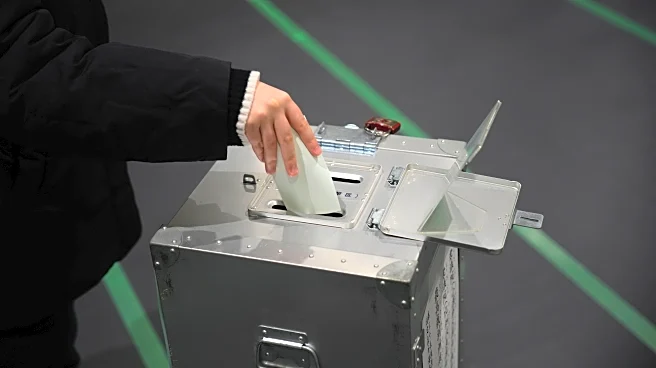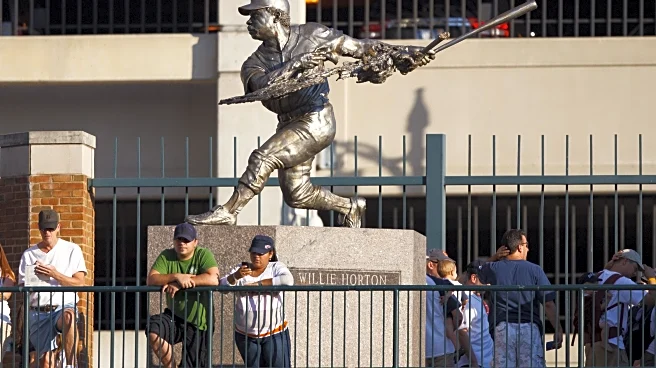What's Happening?
A judge has raised concerns regarding the government's handling of the indictment process against former FBI Director James Comey. Lindsay Halligan, the U.S. attorney responsible for bringing charges against Comey, revealed that the full grand jury did
not review the indictment before it was issued. This revelation has prompted scrutiny over the procedural integrity of the indictment process. The judge's inquiry into these lapses highlights potential issues in the legal proceedings against Comey, who has been a controversial figure due to his role in the FBI's investigation into President Trump and the 2016 election.
Why It's Important?
The judge's questioning of the government's indictment process is significant as it underscores the importance of procedural accuracy in legal cases involving high-profile figures. Any lapses in the indictment process could undermine the credibility of the charges against Comey and affect public trust in the judicial system. This development may also have implications for ongoing and future investigations involving government officials, emphasizing the need for transparency and adherence to legal protocols. The scrutiny could lead to broader discussions about the accountability of legal processes in politically sensitive cases.
What's Next?
The judge's concerns may lead to further examination of the indictment process and potentially impact the progression of the case against Comey. Legal experts and observers will likely monitor the situation closely to see if any corrective measures are taken. The government may need to address these procedural issues to ensure the integrity of the case. Additionally, this situation could prompt calls for reforms in how indictments are handled in cases involving prominent figures, aiming to prevent similar lapses in the future.
















